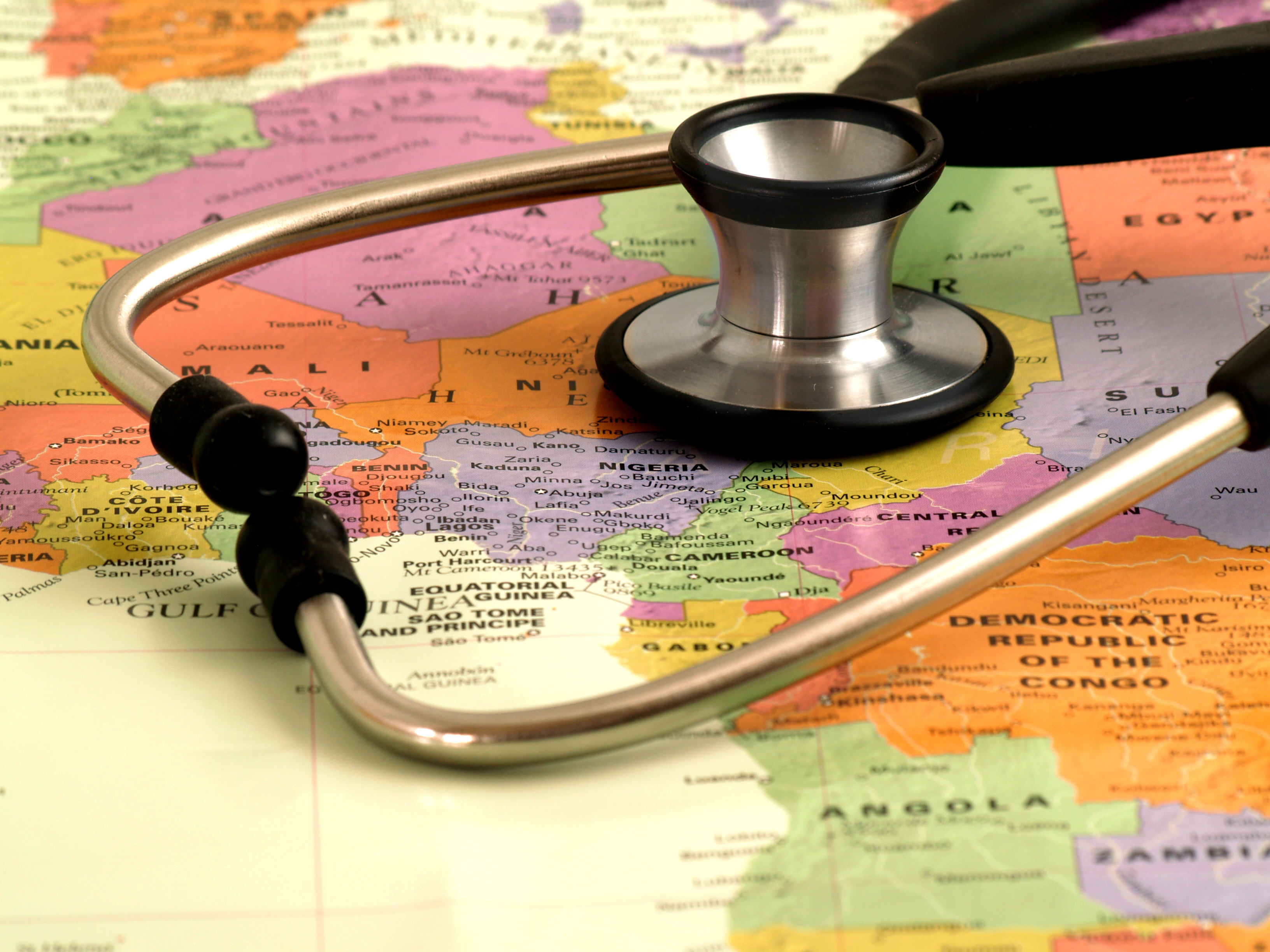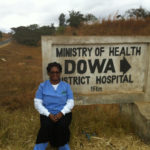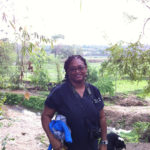If you should get sick after your travels, please see a medical provider as soon as possible. Let them know you were recently traveling, where you traveled and if anything occurred like injury, insect bite, foods eaten, body fluid exposures, medical procedures [Medical Tourism], tattoos or piercing. We can alter the physical examine and tests according to diseases not usually occurring; or search for unusual sources of the illness.
Possible post travel symptoms include:
- DIARRHEA
- FEVER
- BLOOD CLOTS
- RASHES
- SUNBURN
TRAVELER’S DIARRHEA: One of the main reasons for dehydration in a traveler. Diarrhea can be caused by eating or drinking contaminated food/water with bacteria. Your gastrointestinal system is not immune to the local bacteria therefore you develop diarrhea and can lose a large quantity of your body’s water. Many of the developing countries of the world does not have clean water sources. You may be in an area that uses community water via a river or lake; not only is the water used for water but also bathing, watering the animals and washing clothes. You can easily be exposed to several bacteria and/or parasites. If unsure of the water source, use bottle water for drinking and cooking. Don’t drink anything with ice in it; learn to drink room temperature drinks.
Contaminated water in developing countries also can affect your grooming, bathing and swimming. Beware of cuts or open wounds on your body; they should be covered and avoid contact with the water. This includes cuts while shaving and then rinsing the area. Use filtered or bottle water to clean wounds, wash face after shaving and brushing your teeth. Do not swallow the water while taking a shower. And wear sandals or flip flops while taking a shower in case the drainage system is slow and water pools on the shower floor. Parasites and worms can enter your body from the water through your feet. Do not swim in cloudy water. Some bacteria can be inhaled by steam or vapors [HUKA]. If you have persistent diarrhea [10 or more stools in a day or lasting more than 2 days], we want to discover the source and treat according. The common bacteria for diarrhea are E. coli [different types], Giardia, Shigella or Vibrio. Bacteria will present differently; that’s the reason we want to know about your stool and a sample. What color is it? Does it have a smell? Is there blood, mucous, or greasy appearance? Is it loose, runny or watery? Do you have abdominal cramping, gas or bloating? Worms and parasites from water sources can also cause diarrhea. Persistent diarrhea can cause obstruction of the intestine and/or dehydration. Accompany symptoms may include nausea, vomiting, loss of appetite, headache and fatigue. Children and the elderly are more at risk for severe dehydration needing hospitalization. To avoid dehydration with diarrhea, drink an 8 oz glass of water every time you have a stool. The intestines are pulling water out of your tissues and blood attempting to wash out the bacteria. But don’t worrry, there’s medication for the bacteria, worms and parasites once we identify the culprit.
FEVER – fever can be present in many illnesses but most concerning if you have been traveling in the equator belt. The countries within the belt are known for viruses carried by mosquitos: malaria, yellow fever, Dengue fever, Chikungunya and Zika. Malaria can go undetected because it may not show symptoms up to one (1) year after being infected. Malaria shows up as high fevers, chills, rigors, severe headache; its cyclic because you will get sick, get better and then 2 weeks later you are sick again. There is a large medication resistance to malaria in some countries; we need to know the specific country of your travel. Malaria is diagnosed from it’s presence in your red blood cells. Mosquito prevention with insect repellent: natural – lemon oil of eucalyptus or chemical with 20% DEET [adults only] or above. Keep your skin covered, wear light colored breathable clothing [cotton, linen]. Mosquitoes are more prevalent at dusk or dawn but also present during the daytime. Preventive anti-malaria medications available from medical providers; you should take it prior to leaving, during the trip and after the trip.
BLOOD CLOTS: Deep Vein Thrombosis (DVT) and Pulmonary Emboli (PE)
Travel [car, train or plane], especially longer than 4 hours, may increase the risk for blood clots; known as Deep Vein Thrombosis/Pulmonary Embolism (DVT/PE). Blood clots form when the veins in your legs are not moving for a long period of time and your blood is thick. One leg may be more swollen than other (2-3 x the size), hot to touch, calves hurts to touch, redness, pain with foot movement or raising your toes. Blood clots may travel to your lungs. Blood clots in the lungs show up as chest pain, difficulty breathing or catching your breath. These are called pulmonary embolism [PE]; it will decrease your oxygen level, strain your heart and can cause death.
You are at increased risk for DVT/PE if you: a) Have had DVT/PE in the past, b) Have had recent surgery (especially abdominal or orthopedic surgery), c) Are pregnant, d) Are a smoker, e) Are taking birth control pills or hormone replacement therapy, f) Have cancer, restricted movement, or a blood-clotting problem, g) family history, h) obesity, or i) recent broken bone
If you have any of these conditions, talk to your doctor before traveling. People at higher risk for DVT/PE may be prescribed medication during travel.
To prevent DVT/PE during flight:
- Stay hydrated
- Wear loose-fitting clothing
- Walk around every 2 hours, stretch your legs and arms at least once an hour; pump your legs up & down stretching the calves, toe touches/tip toe crunches
- Wear compression socks or stockings that reduce leg swelling and encourage blood flow
- If you do not have any stomach problems, ulcers, bleeding, allergies, medication interactions or contraindications; after consulting with your primary care physician take one (1) baby aspirin at least 2 days before the trip and every day during the trip.
DEHYDRATION – You can develop dehydration in a hot climate from sweating and lost of fluids/electrolyes, diarrhea/vomiting, and/or low water intake during your travel. You should drink half of your body weight in ounces daily; eg., weight = 200 lbs, then drink 100 oz of water. Avoid large amounts of alcohol and caffiene in extreme heat conditions. Dehydration can cause muscles aches, soreness, joint pain, fatigue and possibly fever. It can lead to rhabdomyolysis; your muscles break down and the product [lactic acid] is a large molecule that gets trapped in your kidneys and cause kidney failure. If this occurs, you will need a large amount of fluids for rehydration and hospitalization; IV fluids is the treatment of choice.
RASH – you may develop a rash from exposure to different plants and vegetations; your clothes washed in the foreign country; bug bites and various other scenarios. Inform your medical provider of the country you visited and other contacts such as beds or chemicals.
SUNBURN – a sunburn is a TRUE burn; first degree with redness and 2nd degree if blisters form. Sunburn forms when your skin is exposed to the sun for an excessive period and lack of sunscreen protection. The sun is greatest near the equator and easily burn the skin with 20 minutes of exposure. Water, snow and sand can intensify the sun rays; avoid direct exposure between 10:00 am to 2:00 pm. Prevention is using sunscreen of SPF 30 or greater, and broad spectrum to cover both UVA and UVB rays. Sunscreen should be applied at least 20 minutes prior to the exposure; the time allows it to absorb through the skin cells for protection. Reapply every 2 hours or after being in the water. Remember to put it on the top of your head, face, ears, back of neck; lips should be protected with a lip balm SPF 15 or greater. Wear a hat, lip balm to protect the lips and sunglasses to protect the eyes. Treatment involves removal from the sun and avoidance for days, cool compresses or showers, fluids, pain relievers, aloe and keep burned skin moisturized. If you are going in the sun, cover the sunburned skin. If you have a large surface area of your body sunburned, you can develop sun toxicity or poisoning along with dehydration. Along with the blistering skin, you develop swelling, tingling, headache, fever, nausea, dehydration, and dizziness. If this occurs, seek medical treatment as soon as possible.
Stay healthy and travel well.
Yvette McQueen MD .. Travel Doctor







